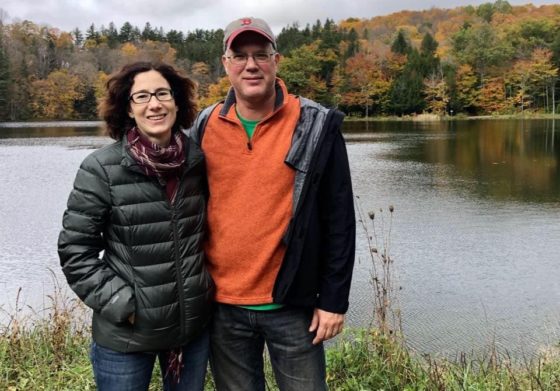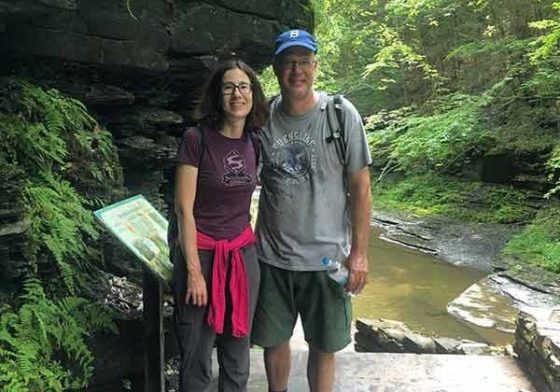In my late twenties, I started to sense a shift in my overall physical well-being. I still have a memory of getting ready to go to a party, grabbing an old pair of jeans, then realizing they were a pair I had not fit into for years — a size zero.
Every symptom was very subtle and gradual: fatigue, a dull but constant pain in my left abdomen, less stamina for exercise, night sweats, headaches, dizziness, and weight loss which puzzled me most. I rationalized these symptoms for a while. My father was terminally ill with colon cancer, so I was heartbroken and very stressed, my wedding was approaching, and I had a pretty intense job. Feeling a bit unwell seemed par for the course.
Through my wedding and through the death of my father, my symptoms increased and became more acute. I was going to my doctor and specialists frequently in an attempt to figure out what was wrong. They would take blood and do various tests, but nothing would ever come of it. I began to wonder if I was being a hypochondriac, and even my primary care doctor wondered if I had an eating disorder.
It wasn’t until I was about to change jobs (and medical insurance) that I made a final appointment with my primary care doctor. I knew something was terribly wrong. I had lost more weight, was exhausted, and remember looking in the mirror and seeing the same pallor my father had when he was fighting cancer.
My doctor took blood, and once again brought up the possibility of an eating disorder. A day later, I was working late at night, and my doctor called me and said he made an appointment for me to see a hematologist. The rest is history.
I was pretty lucky, my cancer was still in an early stage, and I was even more fortunate that a targeted cancer therapy had just been released that could treat Chronic Myelogenous Leukemia efficiently. It is a medication that I still take today that ensures my remission. Had I waited even a bit longer, my treatment might not have worked. My only other course of action would have been a bone marrow transplant, which I was told I was not a good candidate for given my condition at diagnosis.
Whenever I tell this story, I always advise people to pay attention to their bodies. If you notice a change, get it checked out. Keep going to the doctor, even if they find nothing at first. Had I not, I don’t think I’d be telling my story today.
Symptoms
- weight loss
- dull but constant abdominal pain
- fatigue
- night sweats
- headaches









